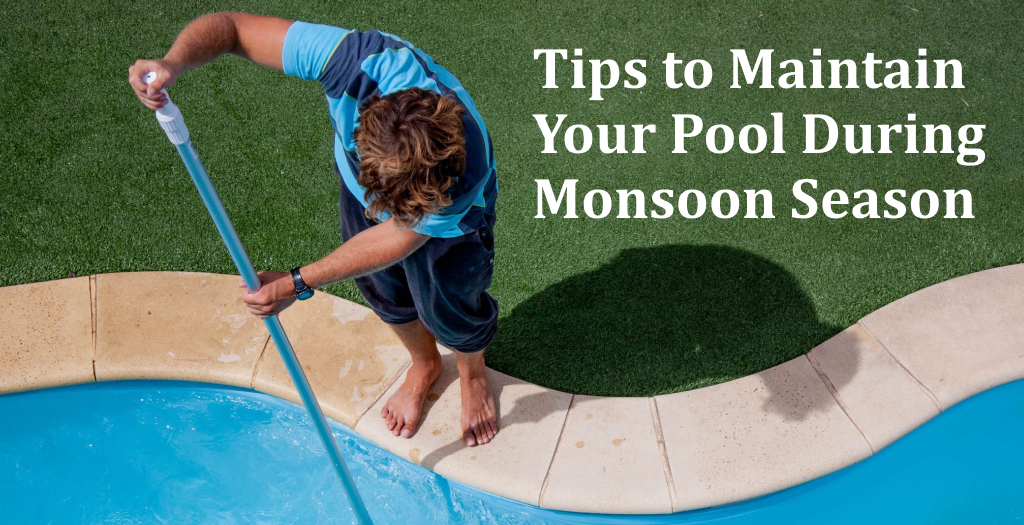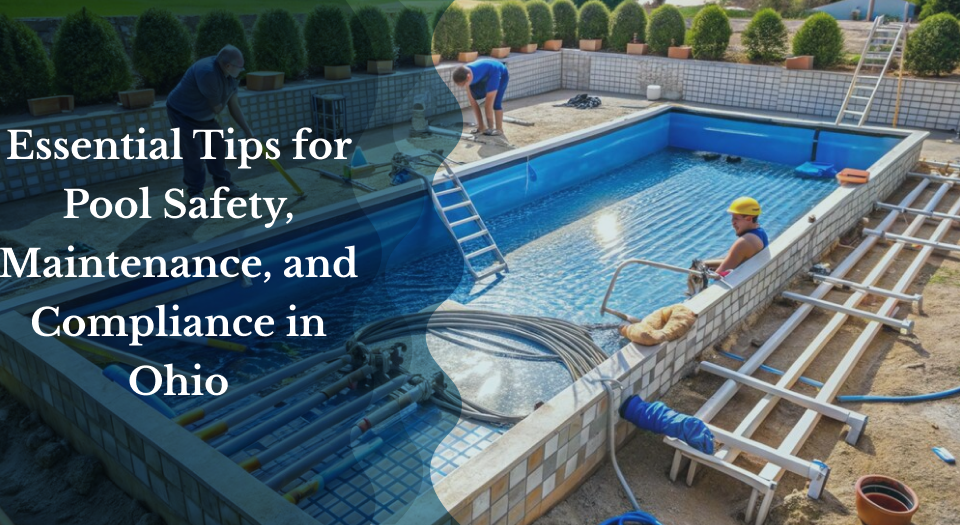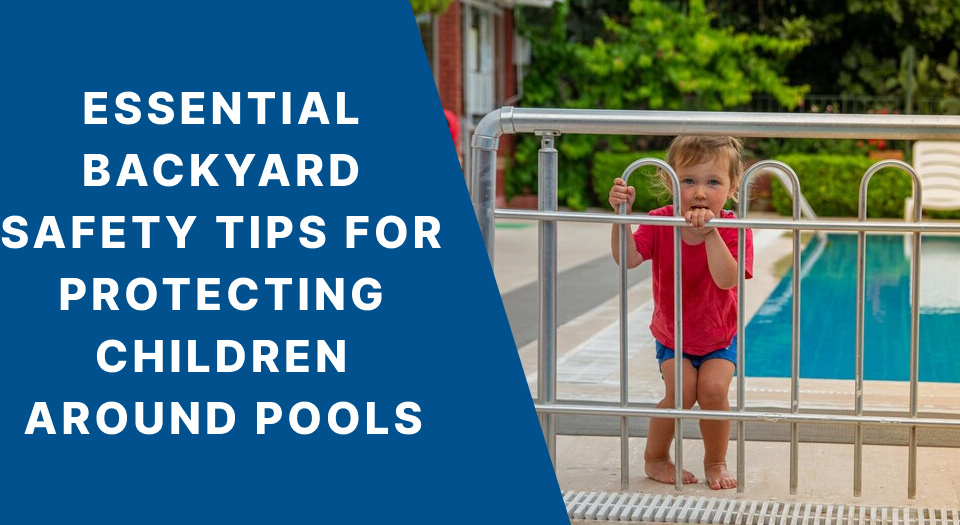
Why Do We Need Pool Fence for Babies?
June 29, 2022
Backyard Pool Safety Tips for Seniors
July 27, 2022Monsoon season is the one wild card that alters the weather patterns drastically. Therefore, it is essential to inspect the state of your swimming pool. The filtering system may work better if you remove debris. There’s a possibility of large branches or any other foreign objects disintegrating in water. Thus, if you do not address it immediately, these particles may block your filtration system and damage the pump.
This blog will discuss tips to maintain your pool during monsoon season.
Filtration tips for monsoon season
Monsoon activity happens in the early evening and afternoon. It helps to avoid the dirt and sand build-up in your pool water; reset the pool filtration system to operate during this window. It would help if you also extended the operating time of your pool filter. Finally, it helps to clean out any lingering debris and dirt.
The dust in the air will continue to permeate your pool water. However, extended filtering will help to keep your pool water healthy and clean. You should be aware that your filtration system will need more attention and maintenance during the monsoon season. It may also need regular backwashing or even the total disassembly of the filter. However, it helps to ensure the right alignment and cleaning.
Other tips for pool maintenance in the monsoon season
During the monsoon season, pump leaf baskets, skimmer baskets, and the pool filter may fill up fast. Regular emptying and inspecting these baskets will help reduce the additional pressure on the pool pump and filters. Remember that the water flow will stop when you fill a basket with debris and other leaves. The pump will immediately burn out if this happens due to water. It is the primary source of cooling for the pump. Your only alternative will be to replace the pump, and it may be a costly fix for you.
Chlorinating after monsoon storms
After a dust storm, a pool that uses an Ozone system or chlorine for cleanliness needs to be hyper-chlorinated which will help avoid algae growth. You may also take a proactive approach using a stain preventer and preventative algaecide before the storm hits. Even in a dust storm, your pool equipment will be treated properly. Remember that algae grow on the phosphates in your pool water, so keeping the water chemistry in check during the monsoon season to avoid algae problems is essential.
Keep water chemistry in balance
Water chemistry is critical when managing or using a pool service. Make sure the carbonated alkalinity is in the right range (80-120 ppm), your pH is set correctly (recommended range is 7.4-7.6), and you get plenty of active chlorine on hand. An algaecide that is not based on copper can be helpful in the preventative steps.
Preparing filtration system for the storm’s aftermath
Your filter is likely to take a beating after the monsoon. The best way to prepare your filter is to clean its cartridges and grids. It will help the filtration system to run efficiently. Expecting your filter to sufficiently clean the pool if it is already polluted can be frustrating and may even damage your filter and its components.
Avoid draining water from the pool ahead of time
Contrary to most homeowners, it would be best if you refrained from draining the pool before monsoon season. It would help if you kept your pool filled at its normal level. It should be near the center of the skimmer opening. It also enables optimal water circulation and filtration throughout the system; however, if you prepare to drain heavy volumes of water in several inches of rainfall during a storm, it will reach the top of your waterline on the tile.
You do not need to cover the pool
When a monsoon storm approaches, your first instinct may be to cover the pool. The cover may help keep the debris and dirt out of the pool during the storm. However, it won’t assist in heavy winds and may even make removing anything flown into the pool more difficult. After a storm, if you remove the pool cover it usually dumps everything so be sure to clean it thoroughly before you remove it.
Trim your yard’s bushes and trees
Trimming loose branches of the bushes and trees will protect your pool and home from damage. Additionally, it will minimize the amount of debris and dirt that will fall into your pool making cleanup much easier. During a storm some trees, specifically those with shallow roots are prone to get blown.
Keep equipment safe
Before a storm, you must protect your equipment by covering the equipment or turning off breakers. Electrical surges are prevalent during monsoon storms and they can result in harming your devices. First, ensure all the breakers in your equipment control panel are turned off. The separate breaker or light circuit controls most automation systems and not the pump circuit.
Conclusion
Monsoon storms can be an aggravating to deal with the aftermath of a storm but it is worth being able to relax in the pool. You can get professional pool services during monsoon season and throughout the year which will help ensure your pool remains as clean and algae-free as possible.




